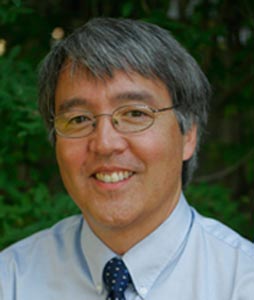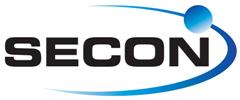|
|
TECHNICAL PROGRAM: KEYNOTE TALKS
 Putting the Cloud in the Palm of your Hand
Putting the Cloud in the Palm of your Hand
Dr. Victor Bahl, Microsoft Research
Tuesday June 28th 2011
Abstract:
Resource poverty is a fundamental constraint that severely limits the class of applications that can be run on mobile devices. This constraint is not just a temporary limitation of current technology, but is intrinsic to mobility. On one hand are small form factor handheld devices and on the other is the cloud, a nearly limitless pool of computing resources that is being heavily touted as the future of computing. It is natural to connect and combine the two to enable a new class of CPU- and data-intensive applications that seamlessly augment the cognitive abilities of users. In this talk, I will put forth a vision of mobile computing that breaks free of the fundamental constraints that have been keeping us from discovering an entirely new world in which mobile computing seamlessly augments the cognitive abilities of users using compute-intensive capabilities such as speech recognition, natural language processing, computer vision and graphics, machine learning, augmented reality, planning and decision-making. By thus empowering mobile users, we could transform many areas of human activity like never before. In this vision, mobile users seamlessly utilize the cloud to obtain the resource benefits without incurring delays and jitter and without worrying about energy. I will highlight some of the challenges we face and some of the solutions we are pursuing along with the successes we are having.
Victor Bahl is the Director of the Mobile Computing Research Center (MCRC) in Microsoft Research. MCRC’s mission is to invent technologies that make Microsoft’s mobile devices and services indispensible to the world. The center engages in basic and applied inter-disciplinary research, builds proof-of-concept systems, engages with academia, publishes papers in prestigious conferences, publishes software for the research community, and streamlines the transfer of cutting-edge technologies to Microsoft’s product divisions. Prior to MCRC, Victor founded the Networking Research Group and served as its manager for 9 years. He continues to help shape Microsoft's long-term vision related to networking technologies through research and associated policy engagement with governments and institutions around the world.
Victor has built several seminal systems with over 12,500 citations; he has authored over 110 peer-reviewed papers and 80 patents; he has won best paper awards at SIGCOMM and CoNext and has delivered over two dozen keynote & plenary talks. He is the founder and past Chair of ACM SIGMOBILE, the founder and steering committee chair of the MobiSys; and the founder and past Editor-in-Chief of ACM Mobile Computing and Communications Review. He has served as the General Chair of several IEEE and ACM conferences including SIGCOMM and MobiCom, and is serving on the steering committees of seven IEEE & ACM conferences & workshop, several of which he co-founded; He is a Fellow of ACM, IEEE and AAAS. He received the IEEE Northwest Region 6 Outstanding Engineer Award and the SIGMOBILE Distinguished Service Award.
When not working, he loves to read, travel, eat in fine restaurants, watch competitive sports and action movies, and spend time drinking with friends and family.
 Cyber-physical systems: linking sensing, networking, computation, and people
Cyber-physical systems: linking sensing, networking, computation, and people
Prof. Jim Kurose, University of Massachusetts
Wednesday June 29th 2011
Abstract:
Cyber-physical systems integrate sensing, networking, and computation to observe, understand, predict and respond to phenomena in both technological and naturally-occurring systems. We begin this talk with a broad discussion of such cyber-physical systems. As a case study, we then “dive deep” into the CASA (Collaborative Adaptive Sensing of the Atmosphere) project - an NSF Engineering Research Center investigating the design and implementation of a dense network of low-power meteorological radars whose goal is to collaboratively and adaptively sense, understand, predict and respond to hazardous weather occurring in the lowest few kilometers of the earth's atmosphere. We describe its computing and networking challenges, overview the software/network architecture and testbed implementations, and our experiences in using user-specified preferences to drive the optimization of the network's sensing behavior. In the second part of the talk, we consider sense-and-response control loops in smart grids, and their control plane requirements. Throughout the talk, we’ll discuss a number of interesting on-going and open research issues, both in CASA and in the larger context of cyber-physical systems, including smart grids.
Jim Kurose received a B.A. degree in physics from Wesleyan University and his Ph.D. degree in computer science from Columbia University. He is currently Executive Associate Dean of the College of Natural Sciences and Distinguished Professor of Computer Science at the University of Massachusetts. Professor Kurose has been a Visiting Scientist at IBM Research, INRIA, Institut EURECOM , the University of Paris, LIP6, and Thomson Research Labs. He is a member of the CRA Board of Directors and the NSF CISE Advisory Council.
His research interests include network protocols and architecture, network measurement, sensor networks, multimedia communication, and modeling and performance evaluation. Dr. Kurose has served as Editor-in-Chief of the IEEE Transactions on Communications and was the founding Editor-in-Chief of the IEEE/ACM Transactions on Networking. He has been active in the program committees for IEEE Infocom, ACM SIGCOMM, and ACM SIGMETRICS conferences for a number of years, and has served as Technical Program Co-Chair for these conferences. He has won several conference best paper awards and received the ACM Sigcomm Test of Time Award. He has also received a number of teaching awards including the IEEE Taylor Booth Education Medal. He is a Fellow of the IEEE and the ACM. With Keith Ross, he is the co-author of the textbook, Computer Networking, a top down approach (5th edition) published by Addison-Wesley Longman.



|
|